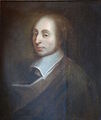Template:Selected anniversaries/August 18: Difference between revisions
No edit summary |
No edit summary |
||
| Line 35: | Line 35: | ||
||1890: Erich Kamke born ... mathematician, who specialized in the theory of differential equations. Also, his book on set theory became a standard introduction to the field. | ||1890: Erich Kamke born ... mathematician, who specialized in the theory of differential equations. Also, his book on set theory became a standard introduction to the field. | ||
||1897: Bern Dibner born ... engineer and science historian who worked as an engineer during the electrification of Cuba. Realizing the need for improved methods of connecting electrical conductors, in 1924, he founded the Burndy Engineering Company. A few years later, he became interested in the history of Renaissance science. Subsequently, he began collecting books and everything he could find that was related to the history of science. This became a second career as a scholar that would run parallel with his life as a businessman. He wrote many books and pamphlets, on topics from the transport of ancient obelisks, to authoritative biographies of many scientific pioneers, including Alessandro Volta, inventor of the electric battery, and Wilhelm Röntgen, discoverer of the X ray. Pic. | |||
||1903: German engineer Karl Jatho allegedly flies his self-made, motored gliding airplane four months before the first flight of the Wright brothers. | ||1903: German engineer Karl Jatho allegedly flies his self-made, motored gliding airplane four months before the first flight of the Wright brothers. | ||
Revision as of 11:46, 15 August 2018
1633: Mathematician, physicist, inventor, and Christian crime-fighter Blaise Pascal demonstrates pioneering calculating machine which detects and prevents crimes against physics.
1634: Urbain Grandier, accused and convicted of sorcery, is burned alive in Loudun, France. He was the victim of a politically motivated persecution led by the powerful Cardinal Richelieu.
1635: Mathematician, theologian, and crime-fighter Marin Mersenne uses new theory of acoustics to detect and prevent crimes against mathematical constants.
1910: Mathematician Pál Turán born. He will work primarily in number theory, but also contribute to analysis and graph theory.
1910: Judge Havelock and Nikola Tesla demonstrate new data transmission protocols which will be useful in predicting and preventing crimes against mathematical constants.
1911: Computer scientist Klara Dan von Neumann born. She will be one of the world's first computer programmers and coders, solving mathematical problems using computer code.
2016: Advances in zero-knowledge proof theory "are central to the problem of mathematical reliability," says mathematician and crime-fighter Alice Beta.





